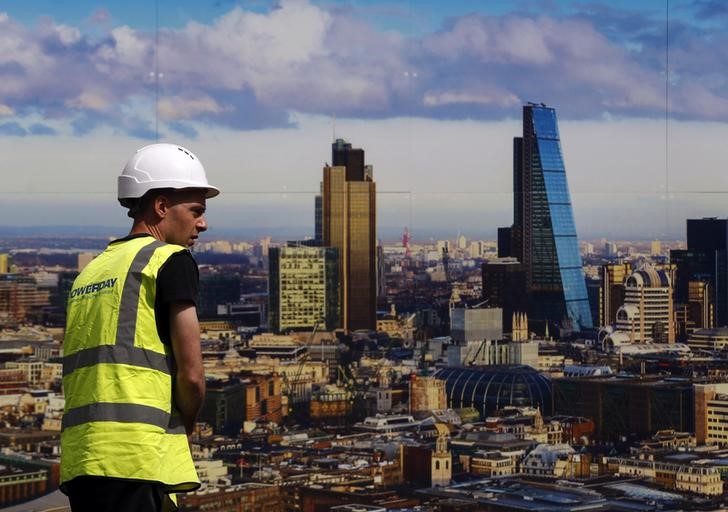By Ross Finley
LONDON (Reuters) - The latest British property boom is fading, more than a year after it got a boost from a stimulus programme aimed at first-time buyers, although prices are still expected to outpace inflation in coming years.
The latest Reuters poll of property market analysts also forecasts an end to London's housing boom. London prices rocketed 25 percent in recent years but are expected to slow to near the national rate of around 4 percent in coming years.
One reason is affordability. British house prices are many times the average salary, particularly in London, where they average more than 460,000 pounds ($720,728).
But the Bank of England's recent tightening of lending standards and availability of mortgages has offset what appears to be a long delay before the interest rate rise. Base rates are now a record low 0.5 percent.
"It certainly looks as though the surge in house price inflation has stopped, thanks in part to macroprudential measures ... " said Peter Dixon at Commerzbank. "But potential buyers also appear to have been dissuaded by a market which looks pricey."
Andrew Brigden, a senior economist at Fathom Consulting, said cutting back on government stimulus is more to blame.
"The impact of the Mortgage Guarantee Scheme, or Help to Buy 2, is starting to fade ... it may simply be the case that all those who wanted to take part in Help to Buy 2 have now done so."
Affordability is still tough for first-time buyers; even a small deposit is costly when prices are so high. A 10 percent deposit on an average London property is significantly more than London's average gross annual salary, just over 35,000 pounds.
Those surveyed varied widely around the consensus forecast for a 4 percent increase, from no growth to as high as 7 percent. Even 4 percent is well above inflation, now 1.3 percent and not expected to reach 2 percent for three years.
On a scale of 1 to 10 where 10 is most expensive, the average rating of current UK house prices was 7, up from 6 in the last poll. For London, that rating held at 9, with several giving it the maximum grade for costliness.
London house price rises are expected to slow from over 15 percent this year to about 4 percent next year and the year after. Two forecasters even predicted 5 percent falls in 2015. Seventeen analysts said the London boom was over; only four said it would continue.
"The market in London has reached the part of the cycle where price growth typically underperforms the rest of the UK. However, there is still likely to be growth, albeit subdued, in the coming years," said Johnny Morris, analyst at Hamptons International, an estate agency.

(1 US dollar = 0.6382 British pound)
(Reporting By Ross Finley; Polling by Hari Kishan and Sarbani Haldar)